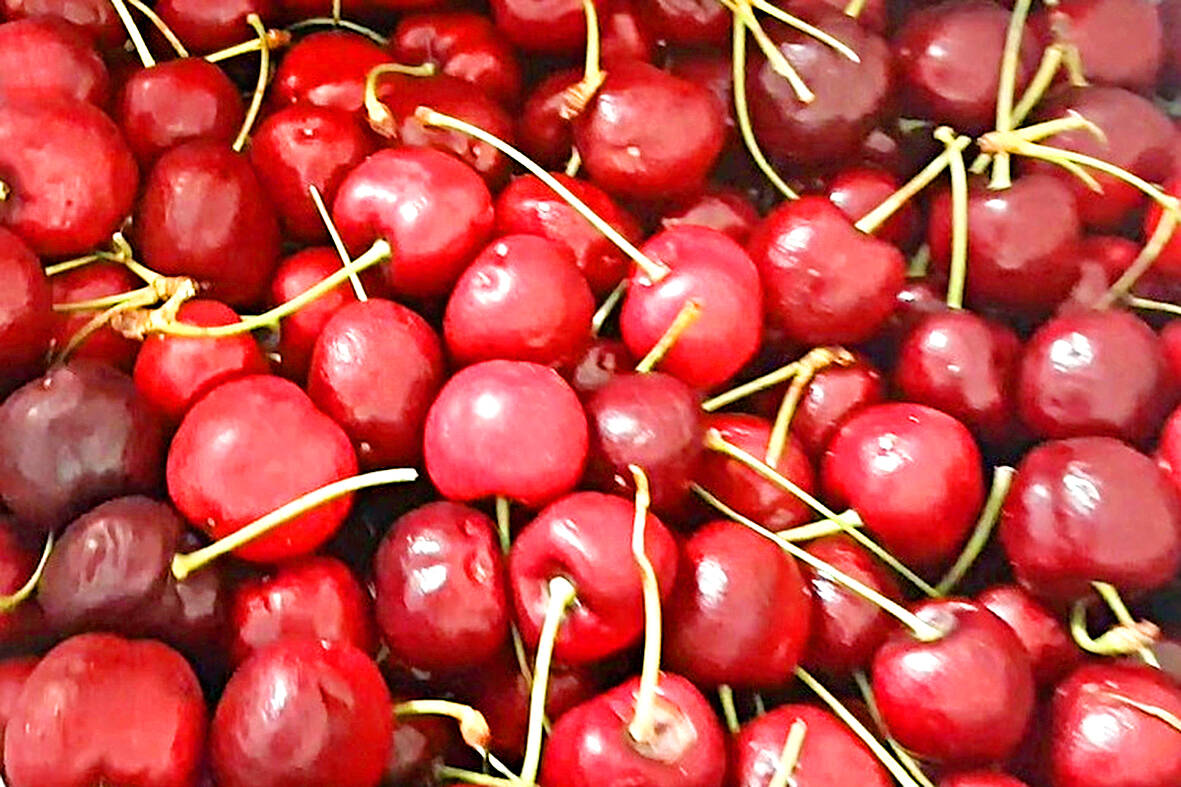A 921.6kg batch of instant noodles from Vietnam containing a banned agricultural chemical was stopped at the border, the Food and Drug Administration (FDA) announced yesterday.
The batch of “Hot Seafood Flavor Noodle” made by Cong ty Co phan Acebook Viet Nam, was found to contain 0.1mg of ethylene oxide per kilogram in its seasoning packets and would be returned to Vietnam or destroyed, the FDA said.
Ethylene oxide is banned in Taiwan, FDA Deputy Director Lin Chin-fu (林金富) said.

Photo courtesy of FDA
Citing FDA data, Lin said that it was first batch of instant noodles to be intercepted from Vietnam this year, but the seventh found to contain the banned chemical, with the other shipments coming from South Korea and Indonesia.
The Vietnamese noodles were just one of the 10 intercepted imports announced by the FDA. Spinach from Australia, hulled sesame seeds from Thailand and organic pepper powder from India also failed to make the cut.
Meanwhile, two batches of fresh cherries imported from the US on Aug. 14 were found to contain the fungicide mefentrifluconazole.
The two shipments from Gebbers Farms were the 34th and 35th batches of US cherries stopped at the border this year, as of yesterday, Lin said.
One of the two batches, weighing 15,306kg, was found to contain 0.01 parts per million of the chemical, while the other, weighing 17,418kg, was found to contain 0.03 parts per million.
All of the cherries rejected from the US came from four companies and were stopped from entering Taiwan because they contained fungicides that are banned in the country, Lin said.
The US on Friday last week promised to urge its farmers and export companies to ensure shipments adhere to Taiwan’s standards, Lin said.
The FDA asked the US to come up with an improvement proposal on July 21 and again on Aug. 10.
The agency said it would not import fresh cherries from the four companies from Aug. 21 to Sept. 20 to allow time for investigations, adding that it would also conduct random checks on half of the cherries imported by other US companies.

The Coast Guard Administration (CGA) yesterday said it had deployed patrol vessels to expel a China Coast Guard ship and a Chinese fishing boat near Pratas Island (Dongsha Island, 東沙群島) in the South China Sea. The China Coast Guard vessel was 28 nautical miles (52km) northeast of Pratas at 6:15am on Thursday, approaching the island’s restricted waters, which extend 24 nautical miles from its shoreline, the CGA’s Dongsha-Nansha Branch said in a statement. The Tainan, a 2,000-tonne cutter, was deployed by the CGA to shadow the Chinese ship, which left the area at 2:39pm on Friday, the statement said. At 6:31pm on Friday,

The Chinese People’s Liberation Army Navy’s (PLAN) third aircraft carrier, the Fujian, would pose a steep challenge to Taiwan’s ability to defend itself against a full-scale invasion, a defense expert said yesterday. Institute of National Defense and Security Research analyst Chieh Chung (揭仲) made the comment hours after the PLAN confirmed the carrier recently passed through the Taiwan Strait to conduct “scientific research tests and training missions” in the South China Sea. China has two carriers in operation — the Liaoning and the Shandong — with the Fujian undergoing sea trials. Although the PLAN needs time to train the Fujian’s air wing and

Taiwanese celebrities Hank Chen (陳漢典) and Lulu Huang (黃路梓茵) announced yesterday that they are planning to marry. Huang announced and posted photos of their engagement to her social media pages yesterday morning, joking that the pair were not just doing marketing for a new show, but “really getting married.” “We’ve decided to spend all of our future happy and hilarious moments together,” she wrote. The announcement, which was later confirmed by the talent agency they share, appeared to come as a surprise even to those around them, with veteran TV host Jacky Wu (吳宗憲) saying he was “totally taken aback” by the news. Huang,

The American Institute in Taiwan (AIT) put Taiwan in danger, Ma Ying-jeou Foundation director Hsiao Hsu-tsen (蕭旭岑) said yesterday, hours after the de facto US embassy said that Beijing had misinterpreted World War II-era documents to isolate Taiwan. The AIT’s comments harmed the Republic of China’s (ROC) national interests and contradicted a part of the “six assurances” stipulating that the US would not change its official position on Taiwan’s sovereignty, Hsiao said. The “six assurances,” which were given by then-US president Ronald Reagan to Taiwan in 1982, say that Washington would not set a date for ending arm sales to Taiwan, consult